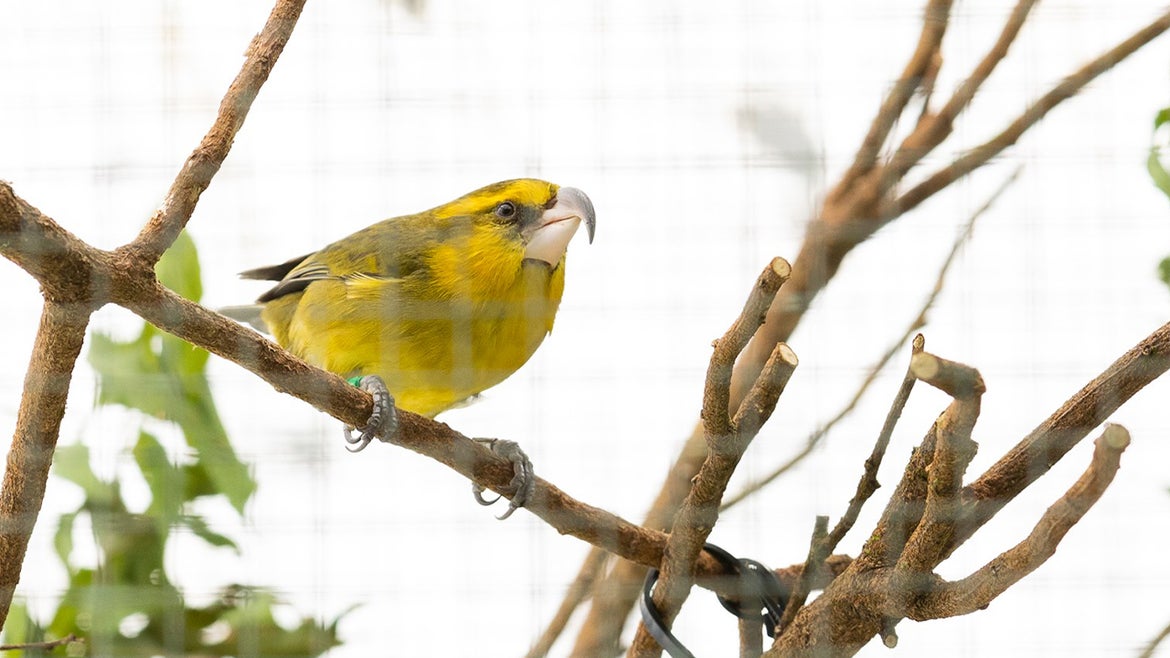"This is an amazing sign of hope for the species as we still may have time to save them," Dr. Hanna Moucne of the Maui Forest Bird Recovery Project said.
A rare gold-and-green-hued bird missing for 605 days and thought to be dead has surfaced on a Hawaiian volcano after a researcher picked up the precise sound of the bird's song in the distance.
“I first heard what I thought might be a distant kiwikiu song. It then sang about ten times across a gulch in some koa trees,” Hawaii Department of Land and Natural Resources researcher Zach Pezzillo said in a statement, according to SFGate.
The endangered bird, known as the kiwikiu, or Maui parrotbill, was one of seven birds en route to Maui’s Nakula Natural Area Reserve in October 2019. When an outbreak of avian malaria transmitted by “non-native” mosquitoes killed five of the birds, the other two had been presumed dead until the discovery of one of the surviving birds was made on Wednesday, the SFGate reported.
Pezzillo was at the Haleakalā volcano-based reserve when he heard the bird. The male bird had a distinct banded mark on its leg, giving the researchers another indication that it was in fact the missing Maui parrotbill.
According to the U.S. Fish and Wildlife Services, the kiwikiu is listed as a critically endangered species, SF Gate reported.
The Maui Forest Bird Recovery Project said that kiwikius have large parrot-like beaks to split branches and to extract insect larvae, which is their primary prey, according to their site.
The adults are 5 to 6 inches long, with olive-green hues above and yellow below. They typically have short tails and distinctive yellow eye-stripes. Females are not as colorful and have smaller bills than males. Immatures are greyish-olive above and pale-yellow below with whitish eye-stripes.
Dr. Hanna Moucne of the Maui Forest Bird Recovery Project was elated when she learned of the remarkable discovery, The New York Post reported.
“This bird has been exposed to disease, as the others were, and has somehow persevered,” she said. "This is an amazing sign of hope for the species as we still may have time to save them."
She continued "This is a hopeful sign that a population of kiwikiu and other native forest birds could survive in restored landscapes in the future, especially without mosquitoes."
Related Stories






